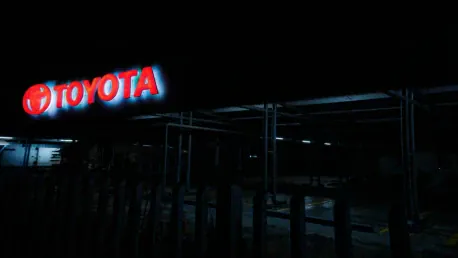Toyota Motor North America’s recent $4.5 million grant from the Department of Energy (DOE) represents a significant leap forward in the field of electric vehicle (EV) battery recycling. As the world embraces electric vehicles at an unprecedented rate, the necessity for efficient battery recycling methods has never been more critical. This grant aims to bolster efforts by the Toyota Research Institute of North America (TRINA) in developing a standardized approach to EV battery recycling facilities, focusing on reducing waste, reusing materials, and ultimately recycling batteries in a more efficient manner. By harnessing the latest technological innovations, Toyota hopes to set a new industry standard in sustainable practices for the future of EVs.
Automating Battery Disassembly and Classification
One of the key points of this project is the creation of a robotic disassembly process for EV batteries, which promises to be a game-changer in battery recycling. In partnership with Oak Ridge National Laboratory, National Renewable Energy Laboratory, and Baker Hughes’ Waygate Technologies, Toyota aims to solve major supply chain bottlenecks. The robotic disassembly process is designed to automate the otherwise labor-intensive task of breaking down battery packs. This automation will not only speed up the recycling process but also increase safety and precision in handling used batteries.
Moreover, a data-driven battery classification system is being developed to accurately assess and categorize battery cells based on their degradation levels. This system aims to address the challenges associated with cell degradation by providing advanced diagnostic tools and methodologies. By implementing these cutting-edge technologies, the project anticipates significant advancements in the efficiency and sustainability of the battery recycling process. The automation and improved diagnostics are expected to reduce human error, lower costs, and maximize the recovery of valuable materials.
Enhancing Battery Lifespan and Sustaining Supply Chains
Central to Toyota’s initiative is the goal of extending the lifespan of EV batteries by reusing and refurbishing components. This approach not only reduces the need for new raw materials but also minimizes emissions per mile driven. Researchers involved in this project are dedicated to finding innovative ways to refabricate and reuse battery components, ultimately aiming to enhance the overall sustainability of the EV supply chain. By focusing on streamlining processes for reusing battery cells and modules from end-of-life packs, they hope to create a more circular and sustainable domestic supply chain for EV batteries.
The grant initiative also emphasizes the importance of developing advanced diagnostic tools that can assess battery health more accurately. This allows for more precise identification of reusable components, thereby reducing waste and improving the overall efficiency of the recycling process. The project aims to minimize the need to inspect every single battery pack individually, which would be both time-consuming and costly. Instead, researchers are working towards a system that can quickly and effectively identify which components can be reused and which need to be recycled, resulting in a more efficient and sustainable approach to battery recycling.
Industry-Wide Implications and Future Outlook
Toyota Motor North America has recently been awarded a $4.5 million grant from the Department of Energy (DOE), marking a substantial advancement in the realm of electric vehicle (EV) battery recycling. As the global adoption of electric vehicles accelerates, the need for effective battery recycling has become increasingly urgent. This grant is intended to support the Toyota Research Institute of North America (TRINA) in its quest to create a standardized system for EV battery recycling facilities. Their efforts are concentrated on minimizing waste, reusing materials, and optimizing the recycling process for batteries. By leveraging cutting-edge technological innovations, Toyota aims to establish a new industry benchmark in eco-friendly practices for the future of electric vehicles. Furthermore, this initiative not only aligns with global environmental goals but also underscores Toyota’s commitment to sustainability and advanced research, which could have far-reaching impacts on the entire EV market. With this funding, Toyota is positioned to lead in developing sustainable solutions.









